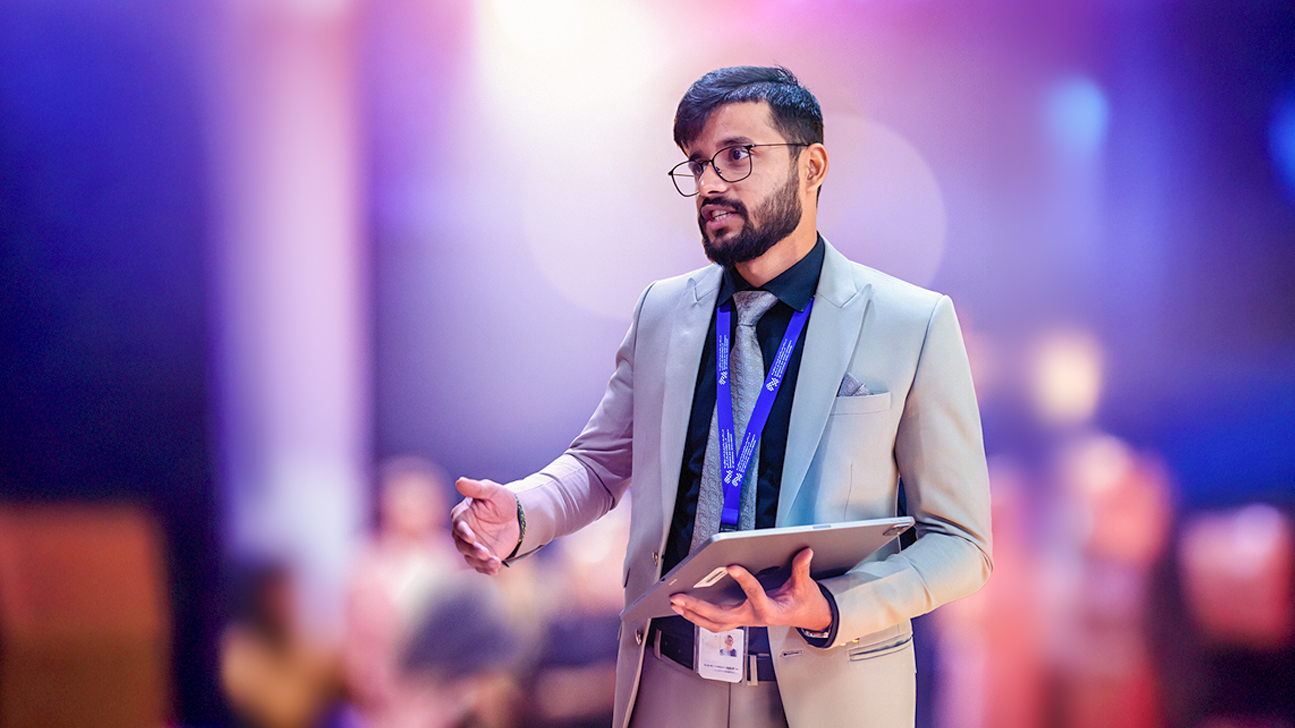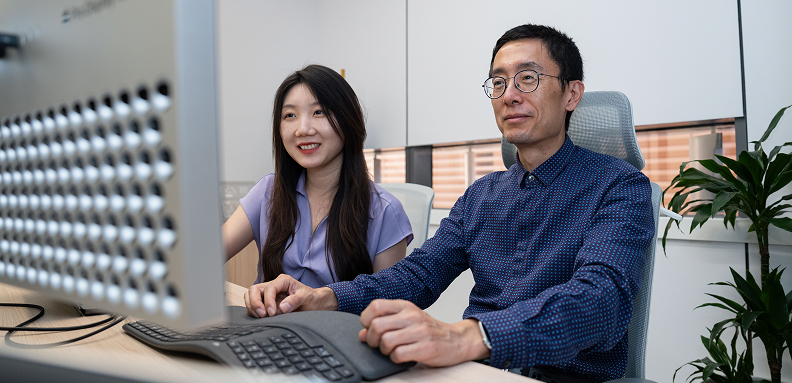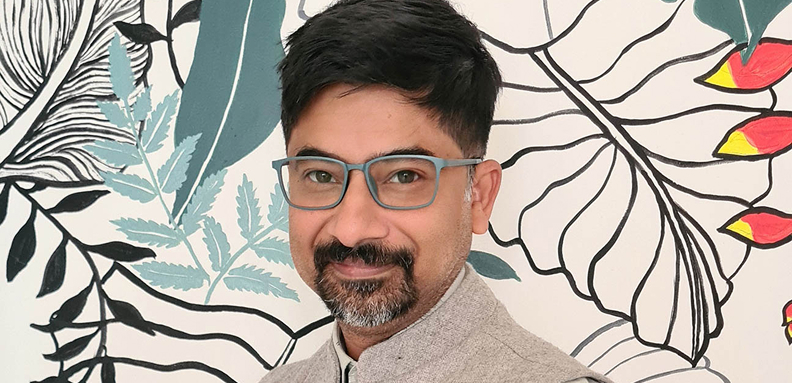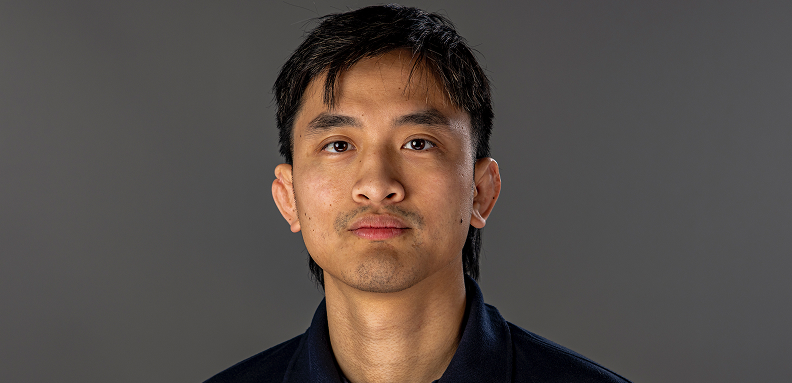Alumni Spotlight: In pursuit of truth
Monday, January 27, 2025

Zain Muhammed Mujahid is a man concerned with the truth. During his master’s degree at MBZUAI, the natural language processing (NLP) student focused on fake news, looking at the political bias, misinformation and disinformation demonstrated by individual media outlets and using large language models (LLMs) to assess new media platforms’ factual reporting levels.
Now, having graduated as part of MBZUAI’s class of 2024, the alumnus has moved from the UAE to Denmark in pursuit of even deeper truth, joining the CopeNLU group at the Pioneer Centre for AI, University of Copenhagen, as a Ph.D. student. There his attention has turned to assessing the assessor — evaluating and enhancing the factual accuracy of LLMs to combat the misinformation and disinformation these models can inadvertently propagate.
“My research has slightly deviated from profiling news media for their bias and factuality, but is still fighting misinformation and disinformation,” says Mujahid, who studied and worked in his native Pakistan before arriving at MBZUAI.
“My Ph.D. topic is called ‘factual text generation’, and I’m looking directly at LLMs because they can sometimes create things that are human-like, very well written, but are hallucinations.
“Sometimes these models are writing completely unrelated things about the query the user has put, and this is what I’m trying to solve. I want to get to the point that when you enter a query, you only get a response that is factual and aligned with the query you input.”
Moving from the warmth of Abu Dhabi to the coolness of Copenhagen in October last year was a significant change for Mujahid, but one he was determined to make based on the focus of his study.
“Through my research at MBZUAI, I came to know Professor Isabelle Augenstein from the University of Copenhagen. She and her lab were working on similar things I was working on and, while I was graduating, she posted a couple of jobs on LinkedIn. I applied and got selected for one of the jobs. This is how I ended up in Copenhagen.”
The truth of the matter
Truth and facts were already a concern for Mujahid prior to arriving at MBZUAI, but it was at the University that he found some direction in terms of how to address the issue.
“Professor Preslav Nakov, Department Chair and Professor of Natural Language Processing, mentored me and helped my work on detecting misinformation and disinformation; for example, fact checking and assessing the bias of a news media related to certain topics using language models,” he says. “This was what my thesis was about — seeing if a certain media has a particular leaning on certain topics such as immigration, the economy, education, and many others. Our product could tell you whether a media’s factual reporting level is high, medium or low, and whether their leaning is left, center, right, and so on.”
Initially focusing on English-language media, Mujahid extended his research to look at cross-lingual bias and factuality detection in news media and news articles. His project SAFARI processed text from media outlets across nine languages – Arabic, German, Hindi, French, Spanish, Hebrew, Japanese, Italian and Russian – to detect their bias and factuality levels. A paper on the research was published and presented at EMNLP 2024.
At the same time, Mujahid became involved with Factcheck-Bench – a fine-grained evaluation benchmark for automatic fact checkers.
“I got introduced to the team at MBZUAI working on fact checking, detecting errors in the output of LLMs and correcting them, and creating benchmarks and evaluation metrics for these kinds of techniques,” he says. “We worked on a paper, also presented at EMNLP 2024, and this is what led me to my Ph.D., as one of the professors working on this topic was Professor Augenstein.”
The importance of fact checking was brought into the public eye during the televised Presidential debates between Donald Trump and Kamala Harris ahead of the US election in late 2024. During the candidates’ exchanges, several claims were fact-checked live on the stage by moderators — a move that split opinion but highlighted the importance of verification.
For Mujahid, the debates showcased two challenges in fact checking: speed and accuracy. Both are areas that AI is helping to improve.
“Regarding speed, if we work manually, we can use technology to gather as much evidence as we can and check the veracity of the claim,” he says. “It can be done but it will take a long time. Now imagine a system where we enter a claim and we can scroll the whole internet, gather tons of evidence, and almost instantly receive back a report that shows how accurate the claim is. That’s a really good system to have.”
While this speed is important, it’s Mujahid’s current work that seeks to give such rapid fact checking credence.
“We have a system that can quickly tell you whether a claim is true or not, but can we be sure that the text the LLM is giving you is true?” asks Mujahid. “This is important because even if people don’t necessarily believe the claim, they will be more likely to believe the fact-checker. So, the fact-checker needs to be right.
“Our system checks the facts and gives evidence against each fact. If a claim isn’t true, then it also corrects it and gives the user a final output that is factually correct, has all errors resolved, and gives evidence for each one.”
Such progress could help transform journalism, public policy, the education sector, and more – let alone increase people’s general knowledge and understanding of topics that they are engaged in. But for Mujahid, the motivation is clear:
“All in all, we just want LLMs to be factual, faithful and helpful, as they should be.”
A continental leap of faith
Relocating to Europe from the Gulf represented a big leap of faith for Mujahid, who was not only stepping into a new geography and culture but also leaving a city – and university – he had come to call home.
“Moving from Abu Dhabi to Copenhagen has been a mix of excitement and adjustment,” he admits. “Abu Dhabi feels very dynamic and fast-paced, while Copenhagen has a more relaxed vibe. The biggest challenge for me was the weather – going from year-round sunshine to cold and dark winters was a bit of a shock!”
“I have so many great memories from MBZUAI – the strongest of which are tied to the friendships and collaborations I built during my time there. Working alongside brilliant minds from all over the world was both inspiring and humbling, and MBZUAI really helped me grow by giving me the confidence to take on big challenges and think critically about AI’s role in the world.”
Despite the change, Mujahid has settled into his new environment well.
“I’ve gradually immersed myself in the Danish way of life – whether it’s navigating the city on a bike or learning Danish,” he says. “Picking up a new language has been both challenging and rewarding; it’s helped me feel more connected to the culture and has made everyday interactions more engaging.”
But perhaps most importantly, Mujahid has joined an institution that he says is both welcoming and inspiring – an ideal place for him to achieve his AI goals.
“The University of Copenhagen, especially the CopeNLU group has exceeded my expectations in providing an inspiring research environment. The emphasis on collaboration and impactful research aligns perfectly with my aspirations. What’s more, the university’s international community has been incredibly welcoming, and I’ve been lucky to meet some supportive colleagues and friends.”
Related
Not just another deck: how MBZUAI’s okkslides is redefining executive communication
The MBZUAI startup is turning messy research and organizational context into decision-ready narratives with a human-in-the-loop AI.....
Read MoreMBZUAI report on AI for the global south launches at India AI Impact Summit
The report identifies 12 critical research questions to guide the next decade of inclusive and equitable AI.....
- inclusion ,
- Report ,
- social impact ,
- equitable ,
- global south ,
- AI4GS ,
- summit ,
Alumni Spotlight: driving AI transformation at a financial giant
MBZUAI alumnus Steven Hoang explains how he is using his master’s in machine learning to help shape.....
- student ,
- Alumni Spotlight ,
- finance ,
- alumni ,
- machine learning ,


